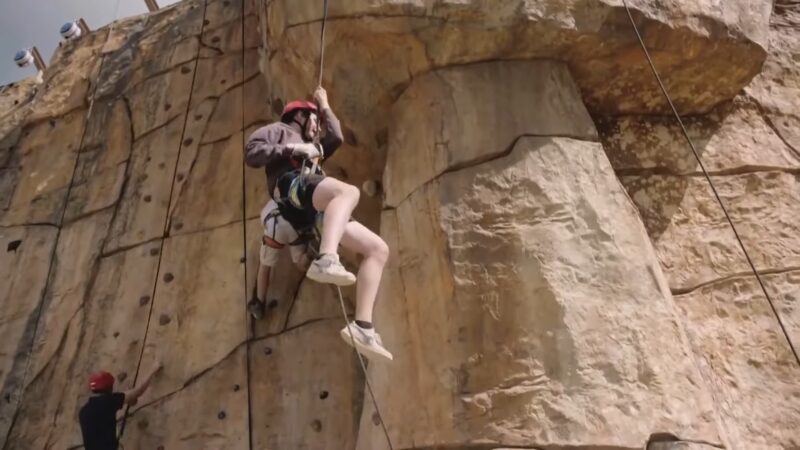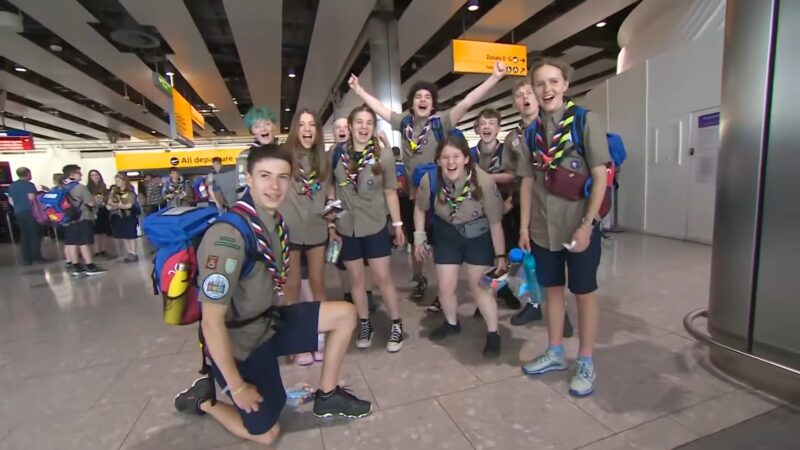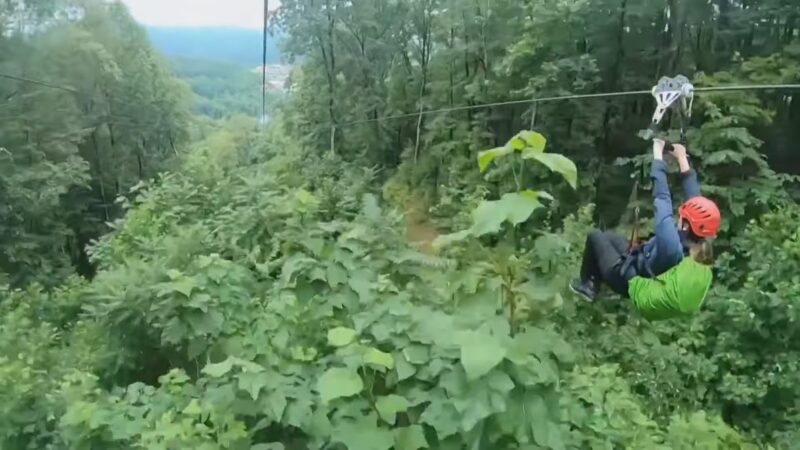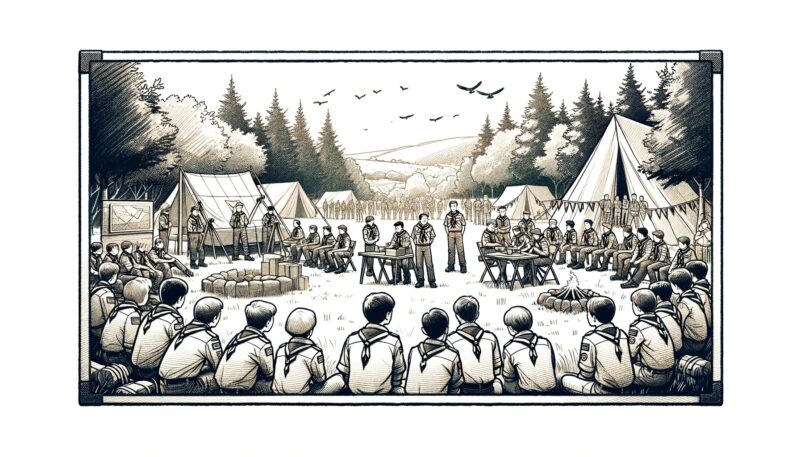Have you ever heard the term “jamboree” and wondered what it’s all about? Picture a vibrant gathering, brimming with excitement, activities, and a sense of community.
That’s a jamboree for you! Originating from the world of scouting, this term has grown to encompass a wide range of gatherings, from music festivals to large scout meetings.
In this exploration, we look into the heart of what makes a jamboree such a unique and captivating event.
When Did It Originate?

The term “jamboree” has its roots in the 19th century, initially surfacing in American slang. It was commonly used to describe a large gathering or celebration, often with a festive or uproarious nature.
This usage reflects the term’s ability to capture the essence of a lively and spirited event, setting the stage for its later associations.
Scouting Influence
The scouting movement, particularly the Boy Scouts of America, played a pivotal role in popularizing the term in the early 20th century. The term was adopted to signify large gatherings of scouts, emphasizing camaraderie and shared learning experiences.
Its adoption by the Boy Scouts of America helped establish the jamboree as a significant event in the scouting calendar, symbolizing unity and adventure.
First Scout Jamboree
The historic first World Scout Jamboree took place in 1920 in London, led by Robert Baden-Powell, the founder of Scouting. This inaugural event set a precedent for international scout gatherings, showcasing a spirit of global brotherhood.
It marked the beginning of a tradition that would see scouts from across the globe coming together to celebrate their shared values and skills.
What Happens at a Jamboree?

Activities at scout jamborees are diverse, including camping, hiking, and various workshops designed to impart new skills and foster camaraderie among scouts. These activities are crafted to challenge the participants, promoting personal growth and leadership skills.
The essence of these gatherings lies in building a sense of community and teamwork, essential values in the scouting movement.
Cultural Exchange
Scout jamborees serve as a melting pot of cultures, offering a unique platform for scouts to exchange stories, experiences, and scout badges. This cultural exchange fosters global understanding and friendship among young people from different backgrounds.
The sharing of traditions and practices at these events helps build a more inclusive and connected global scouting community.
Music Jamborees
Music jamborees, akin to festivals, feature performances by various artists and attract music lovers from diverse backgrounds. These events are celebrated for their vibrant atmosphere and the eclectic mix of music genres they showcase.
The communal experience of enjoying live music creates a bond among attendees, transcending cultural and linguistic barriers.
Community Building
Music jamborees offer a space for people to connect over shared musical interests, often incorporating workshops and other interactive activities. These gatherings not only entertain but also educate and inspire, fostering a sense of belonging and community.
They provide a platform for emerging artists and encourage collaboration and creative expression among participants.
Cultural Significance

Unity in Diversity
Jamborees play a crucial role in bringing together people from diverse backgrounds, fostering understanding and unity. They demonstrate the power of collective experiences in breaking down barriers and building bridges between different communities.
These events are a testament to the idea that despite our diverse backgrounds, we can find common ground and celebrate together.
Educational Aspect
Jamborees offer a rich platform for learning about different cultures, traditions, and lifestyles. Participants gain exposure to new perspectives and ideas, broadening their horizons and fostering a more inclusive worldview.
The educational aspect of these events extends beyond formal learning, encompassing the informal exchange of knowledge and experiences.
Environmental Awareness
Many jamborees, especially those in the scouting movement, emphasize sustainability and environmental responsibility. These events often include educational components about conservation and the importance of protecting our natural world.
By hosting these gatherings in natural settings, organizers aim to instill a sense of stewardship and respect for the environment in participants.
Planning and Attending a Jamboree
Organizing a jamboree is a task that demands attention to every detail, from securing a venue that can accommodate large crowds to managing attendees and ensuring their safety. It involves coordinating with various stakeholders, including local authorities, sponsors, and vendors, to create a seamless experience.
Challenges also include managing budgets effectively, ensuring adequate facilities like sanitation, food, and first aid, and handling unexpected situations like inclement weather.
Volunteer Efforts
These events often rely heavily on volunteer support for their success, with volunteers playing key roles in everything from setting up the venue to guiding attendees. Volunteers also help in creating a friendly and welcoming atmosphere, which is crucial for the overall experience of a jamboree.
Effective training and coordination of volunteers are essential, as they are the backbone of the event, ensuring everything runs smoothly from start to finish.
Attending a Jamboree
If you’re planning to attend a jamboree, prepare for outdoor conditions by packing appropriate clothing, camping gear, and essential items like sunscreen and insect repellent. Research the event beforehand to understand the schedule, available facilities, and any specific rules or guidelines to follow.
Be open to new experiences, as jamborees are a great opportunity to learn new skills, meet new people, and engage in unique activities.
What to Expect?

Attendees should expect a communal living environment, especially at scout jamborees, where sharing resources and space is part of the experience. Active participation is often expected, with numerous opportunities to join in various activities, workshops, and communal duties.
Be ready to embrace the spirit of camaraderie and teamwork, as these are core values in the jamboree experience, enhancing both personal growth and collective enjoyment.
Jamborees Around the World
| Event Type | Features | Frequency and Location | Special Highlights |
|---|---|---|---|
| World Scout Jamboree | – International scouting event – Brings together thousands of scouts worldwide | – Held every four years – In different countries | – Cultural exchanges – Outdoor adventures – Educational programs – Forum for discussing global issues and developing skills |
| Music Jamborees | – Music festivals with historical significance – Features a mix of legendary and emerging artists | Varies depending on the event | – Diverse musical styles and genres – Includes art installations, craft vendors, and food experiences |
FAQs
How can individuals or groups participate in a World Scout Jamboree?
To participate in a World Scout Jamboree, individuals or groups must register through their national Scout organization. The process usually involves an application and sometimes a selection process due to limited spaces.

Are there age restrictions for attending the World Scout Jamboree?
Yes, they typically have age restrictions. Participants are usually between the ages of 14 and 17, although each jamboree may have slightly different age criteria.
What kind of musical genres can be typically found at music jamborees like the Newport Folk Festival?
Music jamborees like the Newport Folk Festival often feature a wide range of genres, including folk, blues, rock, indie, and sometimes even jazz and country, catering to a diverse audience.
Can non-scouts attend or participate in World Scout Jamborees?
Non-scouts are generally not participants in World Scout Jamborees, but some events may be open to the public, such as certain ceremonies or exhibitions.
Do music jamborees like the Newport Folk Festival offer opportunities for amateur musicians?
While primarily featuring established artists, some music jamborees may have stages or sessions dedicated to emerging or amateur artists, though this varies by event.
Are there environmental sustainability initiatives at these jamborees?
Many modern jamborees, especially scout jamborees, incorporate environmental sustainability initiatives, like waste reduction programs, recycling efforts, and educational workshops on environmental stewardship.
Final Thoughts
In conclusion, jamborees, whether they are scouting events like the World Scout Jamboree or music festivals like the Newport Folk Festival, are significant gatherings that bring people together from various backgrounds and scout ranks. They offer unique experiences ranging from cultural exchanges and outdoor adventures in scout jamborees to diverse musical performances and art exhibitions in music festivals.
These events not only provide entertainment and education but also foster community spirit, understanding, and global friendships.
